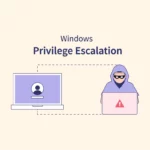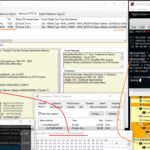No products in the cart.

Sharing My Knowledge Is A Way To Give Back To The Community - An Interview With Gabrielle Botbol [PenTest Magazine]: Hi Gabrielle! Thank you for agreeing to this interview, we’re honored! Can you please introduce yourself to those of our readers who might have not come across your publications just....
Author
Latest Articles
 OfficialFebruary 22, 2023Windows Privilege Escalation: The Concepts of Hijacking Execution Flow
OfficialFebruary 22, 2023Windows Privilege Escalation: The Concepts of Hijacking Execution Flow OfficialFebruary 22, 2023Building Intuition into Monitoring for OT/ICS Security
OfficialFebruary 22, 2023Building Intuition into Monitoring for OT/ICS Security OfficialFebruary 22, 2023WiFi Pentesting with Airodump-ng
OfficialFebruary 22, 2023WiFi Pentesting with Airodump-ng OfficialFebruary 21, 2023ETW vs Sysmon Against C2 Servers
OfficialFebruary 21, 2023ETW vs Sysmon Against C2 Servers
Subscribe
Login
0 Comments
